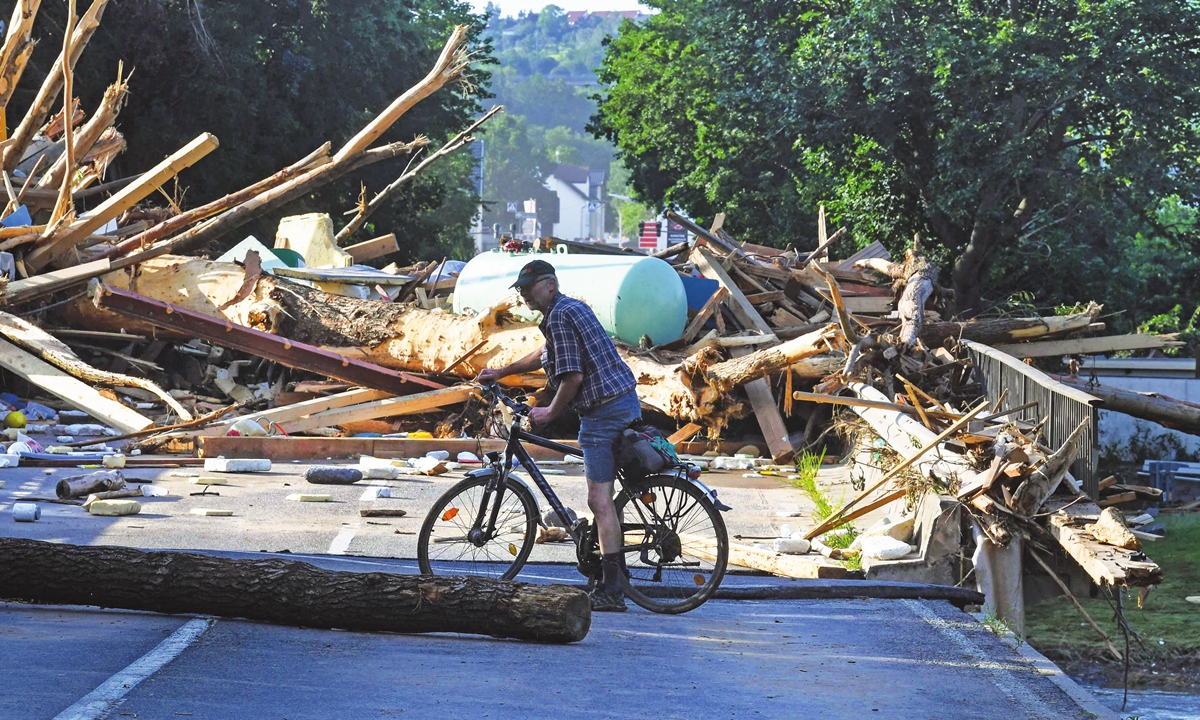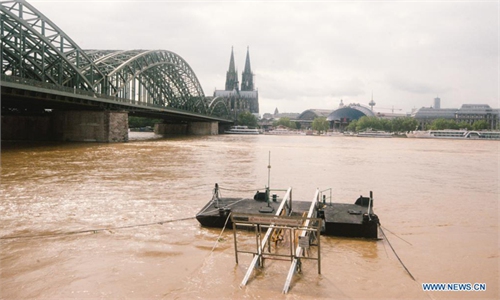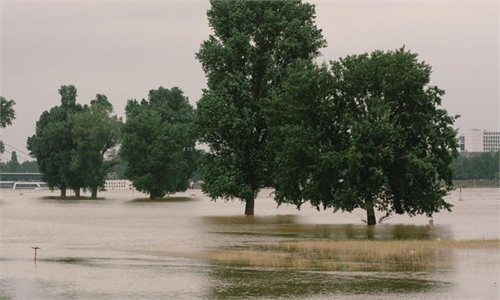
A man on a bicycle is seen on a destroyed bridge in Bad Neuenahr-Ahrweiler, western Germany, on Saturday. Devastating floods in Germany and other parts of western Europe have been described as a "catastrophe," a "war zone" and "unprecedented," with more than 180 people dead and the toll still climbing. Photo: VCG
As Germany mourns more than 150 people who died in floods and begins a mammoth cleanup task, questions are mounting about whether the country's weather warning system failed to keep citizens safe.
Although meteorological services had forecast torrential rain and flash floods for western Germany last week, many residents said they were caught off-guard by rapidly rising waters that destroyed roads, bridges and homes.
"We shouldn't be mourning this many fatalities in 2021," Hannah Cloke, a professor of hydrology at Reading University, told German broadcaster ZDF.
There had been "breaks in the warning chain" somewhere along the way, she said, and messages to evacuate or shelter in place on higher floors did not get through to enough people.
Under Germany's federal system, it is up to the 16 regional states to organize responses to flood alerts and coordinate efforts with the civil protection office and the fire brigade.
Many local authorities use sirens, loudspeaker announcements or radio and TV bulletins to warn residents of acute danger or issue evacuation orders.
There are also smartphone apps to keep users up to date on extreme weather in their area.
But Bild newspaper condemned the "failure" to take early action in the battered states of Rhineland-Palatinate and North-Rhine Westphalia.
"The sirens stayed quiet in plenty of places, very few alerts were issued," it wrote, labeling the deadly flooding that followed "a disaster for civil protection, one of the state's most essential jobs."
Gregor Degen, a baker in the town of Bad Neuenahr-Ahrweiler in Rhineland-Palatinate, where the swollen Ahr river did some of the biggest damage, was among those caught by surprise Wednesday evening.
"We'd heard weather reports of heavy rainfall and seen the odd picture of a flooded street in the region, but no one could imagine anything like this," he told AFP.
"People had the impression that it was just heavy rain, the dramatic scale of it was not clearly communicated," he told the Funke newspaper group.
Minister for Research Anja Karliczek said Germany must prepare better for natural disasters. "We must improve our research into these extreme weather episodes in the next few years," she said.
AFP



